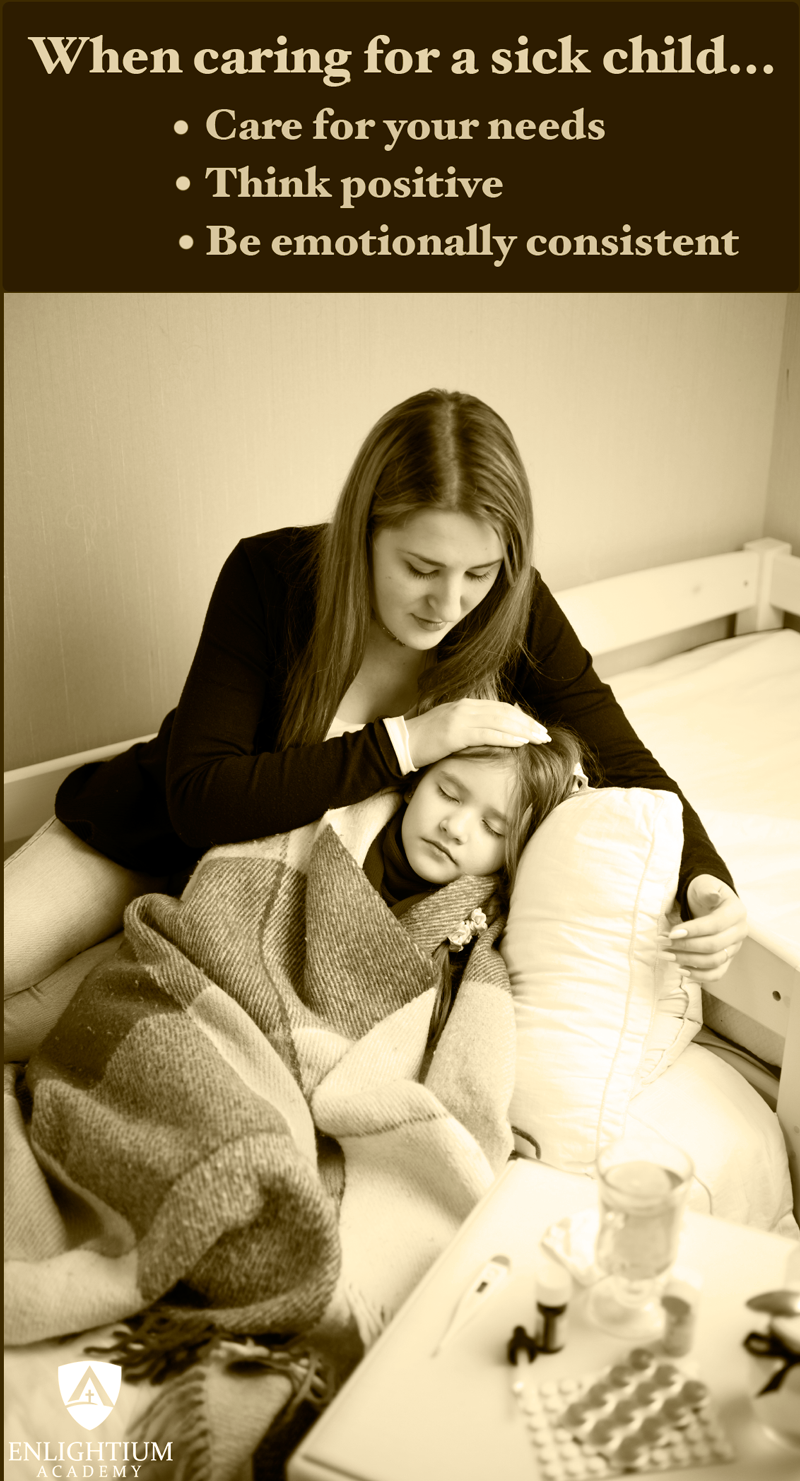The heavy wooden door groaned as I pushed past with a silver cart laden with towels, hot water, and materials to build a splint. Closed blinds shed a dim light on a young boy lying restlessly on the hospital bed. His mother rose to meet me; her eyes too tired from caring for a sick child to return my smile as I entered the room. She had been by his side almost every moment for the last 72 hours so that her son would have a friendly face whenever he was awake during the day...
During my time working at one of the largest children’s hospitals in our area I saw many scenarios like this. Sometimes accidents or illness happen suddenly, leaving parents reeling while they desperately grasp for ways to cope. Some parents can feel very frustrated, overwhelmed, and like everything is going wrong. Other parents faced with similar situations seem to take it all in stride and are able to maintain a cheerful disposition. The latter group of parents were able to maintain healthy personal boundaries, a positive attitude, and emotional consistency.
Here are a few tips when it comes to caring for a sick child:
Care for your needs - When a child is sick it is easy to get swept up in waiting on his or her every need, taking little time for your own personal needs. While this might work for short spurts of time, exhaustion and weariness will quickly grow, disrupting your ability to think reasonably and rationally, impairing healthy interactions with your spouse, work associates, and other relationships. It is important to take care of yourself by eating healthy, exercising regularly, and getting enough rest. You might think of caring for a sick child as having similar instructions they give you about oxygen masks on the airline: you need to put your own oxygen mask on and then assist your child. If you don’t take care of your own health needs, you won’t be able to fully support your child on his or her road to recovery.

Think positive - Maintaining a positive mental attitude amidst a seemingly negative situation exercises self-control and resilience. Throughout the decades there have been numerous authors emphasizing the virtues of positive thinking and controlling personal thought. Children look to the people around them for cues on how to respond or react to their situation. If the television is on and reflecting a negative view of life circumstances, then a child is inclined repeat what they hear. The same is true with adults. If we only have negative input and people feeding fear and worry into our hearts, then we will spread that negativity like a disease to those around us. The reverse is also true. If we take the time to discipline our thoughts and tongue to focus on the positive ways to be thankful, then we breathe life to those around us. Because our minds tend to default to negativity, we have to make a conscious effort to reprogram our hearts.
“Finally, brothers and sisters, whatever is true, whatever is noble, whatever is right, whatever is pure, whatever is lovely, whatever is admirable—if anything is excellent or praiseworthy—think about such things.” Philippians 4:8
Be emotionally consistent - A close second to maintaining a positive attitude is learning the discipline of emotional consistency. Emotional consistency isn’t learned overnight and is easier to learn if you have a positive mentor in your life that you can bounce ideas and frustrations off of. Learning to respond to your child’s needs instead of reacting in a volatile emotionally-charged manner facilitates a safe environment. Some of the strategies for staying healthy physically also increase your capacity for emotional consistency. In addition to the ideas previously mentioned, journaling, prayerful meditation, music, and laughter can help.
So what ever happened to that little boy? Even though his mom was tired and hadn’t spent much time taking care of herself, she still had a positive attitude and was emotionally consistent. He wasn’t too excited about his occupational therapist splinting his arm because he was afraid it would hurt. It did hurt, and he whimpered while mom held his other hand. Now his arm is healed and what seemed like a dark and difficult time for that family is a distant memory.
